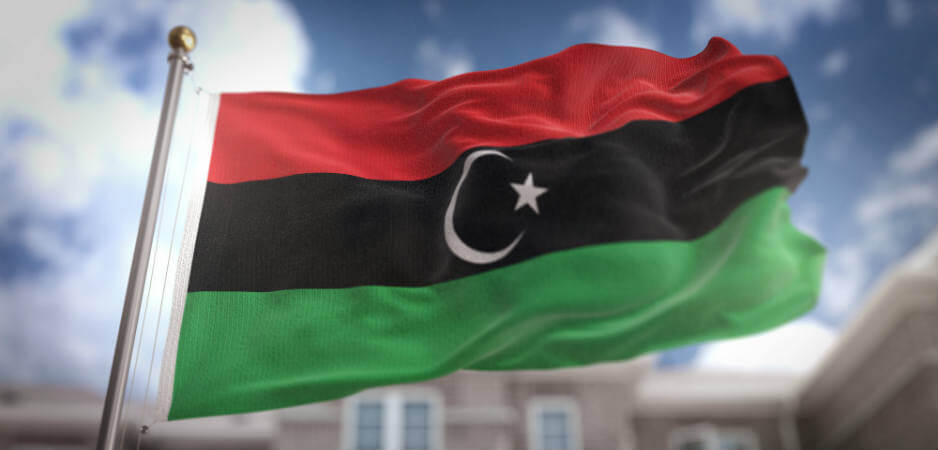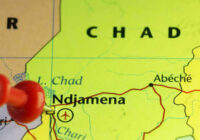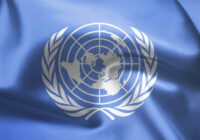Can Saif al-Islam Gaddafi unite Libya with the support of the country’s numerous tribes?
Understanding the three key actors in the Libyan Civil War is critical during the coming months. Libyan National Army (LNA) Field Marshal Khalifa Haftar is pushing his Operation Dignity forces to the west and south of the country. His goal is to dislodge the failing UN-mandated Government of National Accord (GNA) and the fractured General National Congress (GNC) in Tripoli.
Ahmad Gaddaf al-Dam, cousin and former adviser to the deceased Libyan leader Muammar Gaddafi, is planning a return to Libya from his home in Egypt, and Gaddafi’s son Saif al-Islam Gaddafi, who was released from prison in 2016, is now garnering tribal support for a potential national role.
In fact, recent developments in the beleaguered North African country reveal that preparations are underway for Saif al-Islam Gaddafi to be Libya’s next president following an interim period led by Haftar, with assistance from al-Dam. The tribes will be playing a key role in unifying the country behind these men.
These are not speculations. Indeed, al-Dam is currently preparing for his cousin, Saif al-Islam Gaddafi, to have a say in the country’s political arena after ensuring the latter’s safety. Last summer, authorities released Gaddafi from prison after lifting his death sentence as a result of negotiations between Zintan authorities and the Gaddafi tribe.
Liberation
According to sources close to al-Dam, who is based in Egypt and pays frequent visits to the United Arab Emirates (UAE), Gaddafi will soon deliver a speech to the people of Libya once the country is fully “liberated” from actors in the civil war that the Tobruk-based administration, which Haftar is loyal to, recognizes as terrorist groups.
This will be done with assistance from Cairo and Abu Dhabi and logistical support from both Russia and the US, the latter of which is to guard Libyan oil fields. These plans entail American oil companies developing Libyan oil wells, guarded by US military. Reportedly, Russia will train Libya’s armed forces.
Gaddafi and al-Dam are holding peace talks with major Libyan tribes. Haftar’s talks in Moscow earlier this year were aimed at rehabilitating the LNA and supplying it with Russian weapons. There are good odds that the tribes which stood by Gaddafi in the past will fully support the LNA’s fight against Salafist jihadist militias that have won control over parts of post-Muammar Gaddafi Libya. Al-Dam is now looking into the role that the tribal structure would play to achieve peace, stability and reconciliation in the country to reunify it after six years of violent unrest, which have resulted in hundreds of thousands of Libyans dying and being displaced.
The sources also talk about the key points of Gaddafi’s upcoming speech that will address the situation in the country and the need for reunification in order to counter all potential risks and threats, as well as exert all efforts to rebuild the country, drawing from oil revenues. Gaddafi will also highlight the importance of having good relations with African states, countries in southern Europe, the US and Russia.
Moscow has been playing both sides of the Libyan Civil War by maintaining ties with the Tripoli- and Tobruk-based governments that broke ranks in 2014, splitting the country between the west (Tripolitania) and east (Cyrenaica). Yet Russia may well determine that no Libyan civilians can effectively rule the North African country and that the authorities in Tobruk, under the leadership of Haftar — who may pave the way for Gaddafi — should receive the Kremlin’s all-out support. In the event that the ineffectual, albeit internationally-recognized GNA crumbles this year, such a scenario would become increasingly likely.
As of now, the Russians seem to trust Haftar and prefer dealing with the field marshal more than other Libyan officials. Although the Trump administration has yet lay out its vision for Libya, the Tobruk-based authorities are seeking to secure a commitment from the 45th American president that he will lend Haftar future US support.
On April 10, Haftar met with a high-ranking US military official in Abu Dhabi to discuss the topic. Although the US still, at least officially, recognizes the GNA as Libya’s legitimate government, the anti-Islamist composition of Trump’s administration and Haftar’s narrative about leading the struggle against terrorism and extremism in Libya may well convince Washington to withdraw its support for the Tripoli-based government and back its rival in the east.
Tribal Loyalties
Muammar Gaddafi’s daughter, Aysha, is ruled out of the presidential race as her brother Saif al-Islam has a better chance of representing a united country upon receiving the full support and allegiance of Libyan tribes. With more than 140 tribes and clans, Libya is believed to be the most tribal nation in the Middle East and North Africa, where every single tribe has a say in a future Libyan government. This is well understood by Saif al-Islam Gaddafi, Haftar and al-Dam.
The goal is to orchestrate an effort to allow Gaddafi to lead the nation with full support of those tribes whose influence extends beyond Libyan borders, including Gaddadfa, Bani Salim, Bani Hilal, Warfallah, Kargala, Tawajeer, Ramla, Tuareg and Magariha. For this purpose, meetings were held in western Libya, near the Algerian border, to discuss the matter.
Perhaps only Gaddafi is capable of reuniting the country in spite of friction and violent conflict that tears Libya apart. There are indications that there is growing support for him among Libya’s main tribes. Those who fought against his father’s regime during the 2011 revolution may not agree with this solution. But whether those forces will overcome their divisions, which are playing out in deadly clashes in Tripoli, and unify enough to really have a say in this development remains doubtful.
In other words, infighting seems likely to overtake any unified attempt to counter Gaddafi’s ascent. Gaddafi is pushing a Truth and Reconciliation Committee to air grievances to bring the shattered country together. His policy also seeks, along with Haftar and al-Dam, the lifting of sanctions to release frozen funds from the Libyan Investment Authority and those owed to the Central Bank of Libya to give the economy a much needed boost.
The tribes have high stakes in the country’s future leadership. The coming few weeks will witness many developments, starting with the trips that Haftar and al-Dam will pay to Egypt, Russia and the UAE after they are given a carte blanche by the tribes who will voice their allegiance to Saif al-Islam Gaddafi to be the next Libyan leader.
The views expressed in this article are the author’s own and do not necessarily reflect Fair Observer’s editorial policy.
Photo Credit: NatanaelGinting
Support Fair Observer
We rely on your support for our independence, diversity and quality.
For more than 10 years, Fair Observer has been free, fair and independent. No billionaire owns us, no advertisers control us. We are a reader-supported nonprofit. Unlike many other publications, we keep our content free for readers regardless of where they live or whether they can afford to pay. We have no paywalls and no ads.
In the post-truth era of fake news, echo chambers and filter bubbles, we publish a plurality of perspectives from around the world. Anyone can publish with us, but everyone goes through a rigorous editorial process. So, you get fact-checked, well-reasoned content instead of noise.
We publish 2,500+ voices from 90+ countries. We also conduct education and training programs
on subjects ranging from digital media and journalism to writing and critical thinking. This
doesn’t come cheap. Servers, editors, trainers and web developers cost
money.
Please consider supporting us on a regular basis as a recurring donor or a
sustaining member.
Will you support FO’s journalism?
We rely on your support for our independence, diversity and quality.







